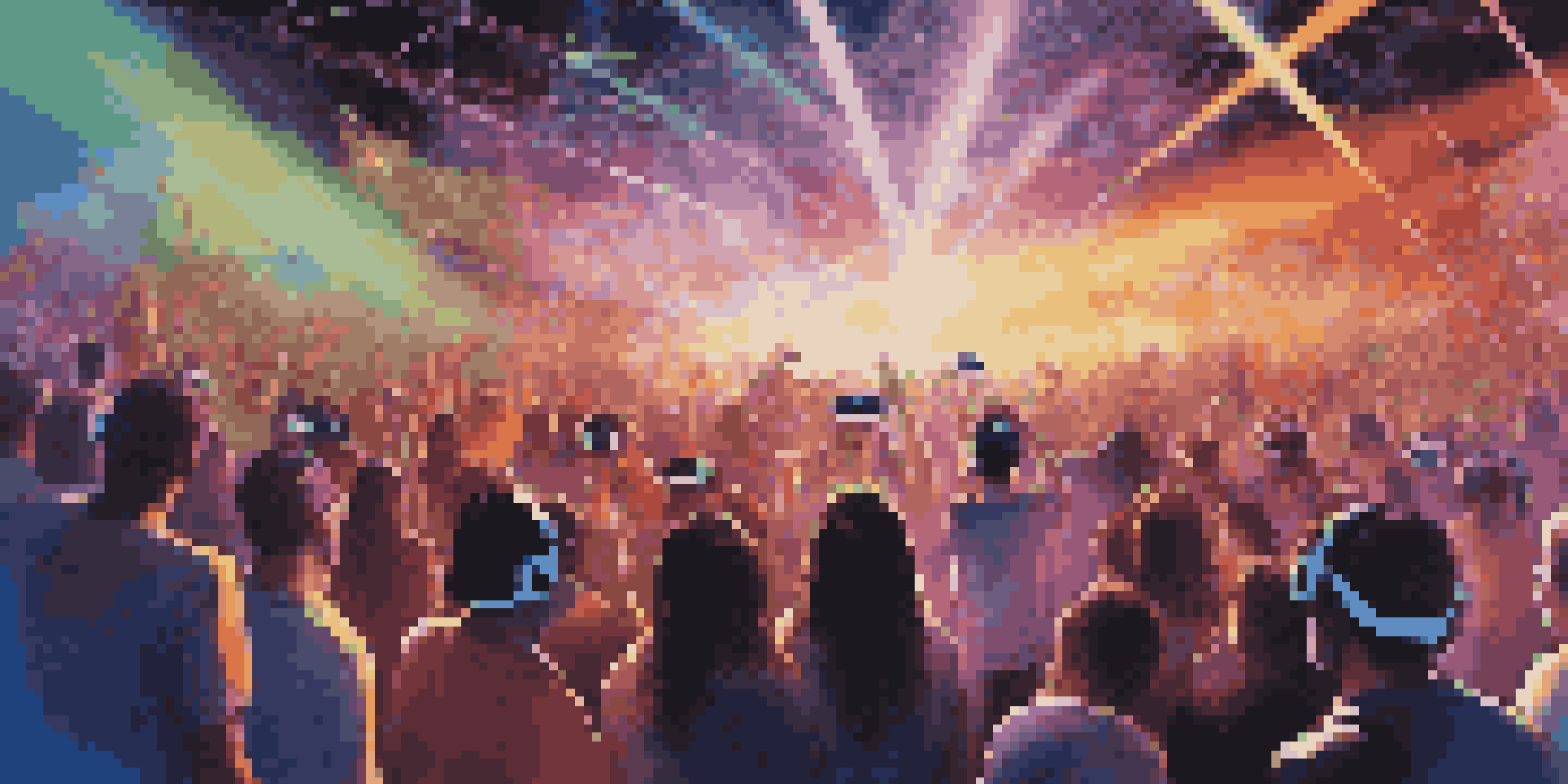The Future of Virtual Reality in Music Experiences

The Rise of Virtual Reality in the Music Industry
Virtual reality (VR) has taken the music industry by storm, offering a unique way for fans to engage with their favorite artists. Imagine attending a concert without ever leaving your living room, feeling the energy of a live crowd, all thanks to VR technology. This innovative approach not only creates immersive experiences but also breaks geographical barriers, allowing fans worldwide to connect. As artists and bands explore this new medium, the potential for creativity and fan engagement expands exponentially.
Enhancing Live Concert Experiences with VR
Live concerts have always been about the atmosphere, and VR is revolutionizing how we experience them. Picture being front row at a concert while simultaneously having the ability to see the show from different angles, all in real-time. This immersive experience allows fans to choose their perspective, making each concert uniquely personal. Furthermore, VR can simulate the feeling of being surrounded by fellow fans, enhancing the sense of community that live music brings.
VR Transforms Concert Experiences
Virtual reality allows fans to experience concerts from multiple perspectives, enhancing personal engagement and the sense of community.
Creating Virtual Music Festivals for Global Audiences
Virtual music festivals are emerging as a game-changer, allowing artists to reach audiences far beyond their physical limitations. These events provide a platform for diverse lineups and interactive features, making it feel like a festival experience from the comfort of home. Fans can navigate virtual grounds, interact with other attendees, and even participate in Q&A sessions with their favorite artists. This accessibility opens the doors to music lovers who may not have been able to attend in person due to distance or financial constraints.
The Role of VR in Music Education and Learning
Beyond entertainment, VR is poised to transform music education. Imagine students learning to play instruments in a fully immersive environment where they can see and hear their progress in real-time. VR can offer virtual masterclasses with renowned musicians, providing insights that traditional classrooms might lack. This innovative approach can foster creativity and encourage collaboration among budding musicians, making learning more engaging and interactive.
Global Reach with Virtual Festivals
Virtual music festivals provide an inclusive platform for diverse audiences, allowing fans to enjoy live performances without geographical constraints.
The Impact of VR on Music Production and Collaboration
Virtual reality is not just changing how we experience music, but also how it is created. Music producers and artists can collaborate in virtual studios, regardless of their physical locations. This opens up new avenues for creativity, as musicians can experiment with sound in a shared virtual space. As technology evolves, the potential for real-time collaboration in immersive environments will likely redefine the music production landscape.
Challenges Facing VR Adoption in the Music Scene
Despite its potential, the adoption of VR in the music industry faces several challenges. There are significant costs associated with VR technology, both for artists and consumers, which can be a barrier to entry. Additionally, the need for high-quality VR content and the technical know-how to produce it can deter many artists from exploring this medium. As the technology becomes more accessible and affordable, these challenges may diminish, allowing for greater experimentation and innovation.
Innovative Music Education via VR
VR technology is set to revolutionize music education, offering immersive learning environments and virtual masterclasses with renowned musicians.
The Future of Fan Engagement through VR Experiences
The future of fan engagement is bright with VR at the forefront. As artists leverage this technology, fans will have unprecedented access to exclusive content, behind-the-scenes experiences, and interactive sessions. Imagine a world where fans can join virtual meet-and-greets or participate in live jam sessions with their idols. This level of intimacy and connection is set to deepen the bond between artists and their audiences, creating a more engaged and loyal fanbase.
Conclusion: Embracing the Virtual Reality Revolution in Music
As we look ahead, it is clear that virtual reality will play a significant role in shaping the future of music experiences. From immersive concerts to innovative education methods, the possibilities are endless. Artists, producers, and fans alike have the opportunity to embrace this revolution, forging new paths in how we create and experience music. By staying adaptable and open to change, the music industry can thrive in this exciting new era.